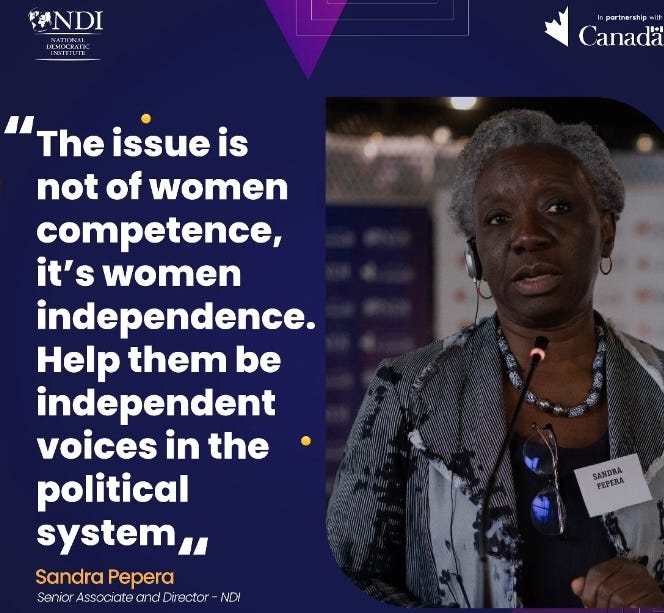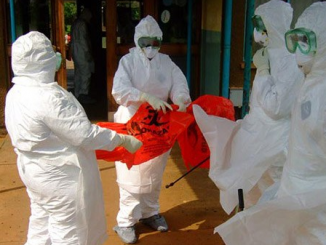
Regional Conference on Tackling Disinformation and Hate Speech Ends in Monrovia
By: Christian Conteh

A Regional conference, which sought to foster collaborative efforts in combatting misinformation, disinformation, and hate speech across the African continent has successfully ended in Monrovia, Liberia.
Organized by the National Democratic Institute (NDI) with support from Global Affairs Canada, the three-day event brought together member organizations from various African countries, including Nigeria’s Centre for Democracy and Development (CDD), the Sierra Leone Association of Journalists (SLAJ), Liberia’s Innovation Lab (iLab), as well as representatives from Burkina Faso, Mali, Côte d’Ivoire, Senegal and the Democratic Republic of Congo.
The primary objective of the gathering was to facilitate collaboration and information sharing among the participating organizations. The rising prevalence of disinformation and hate speech, often propagated by individuals with political or nefarious motivations, has raised significant concerns about information integrity and democratic processes across the region.
During the conference, diverse strategies to combat these harmful practices were discussed intensively from July 27 to July 29, 2023. Participants benefited from insights shared by esteemed speakers.
Irene Mwendwa is Director of Strategic Initiatives and Feminist Movement Building Program from Kenya, she spoke about the impact of disinformation and hate speech on electoral processes, while exploring ways for civil society and media organizations to address threats to electoral integrity in their respective countries.
Mwendwa also delved into the common tactics employed in harmful information campaigns, critically assessing the challenges in countering them.
Sandra Pepera, Director of Gender, Women and Democracy at NDI, presented sub-Saharan African regional examples and research from countries such as Uganda, Kenya, Ivory Coast, and Nigeria. Her discussion shed light on gender stereotypes and misogyny online, emphasizing the various impediments women face, particularly in the political arena.
“We cannot just focus on empowering women; we have to work on the other layers. We have to understand the nature of the challenge and address it at each respective layer,” Sandra said.
In the area of legislation, she noted that although women clamour for cyber security laws, they must be cautious, indicating that, “Bad legislation is worse than no law at all.”
Pepera emphasized the importance for participants, as a sub-regional group, to fully understand the nature of these challenges and collectively address them at various levels.
Madeleine Nicoloff, Program Officer at the NDI Democracy and Technology Team, played a vital role in mapping out the information environment. She shared insights on how the use of open-source monitoring tools can effectively counter disinformation.
Attendees actively engaged in discussions on tools and methodologies for monitoring the online space, sharing their own achievements and case studies related to online monitoring and reporting in the region.
The conference also highlighted the disproportionate impact of disinformation and hate speech on women and marginalized communities. It was emphasized that these harmful practices exacerbate religious, ethnic, and regional divisions, eroding citizens’ trust in elections and democratic processes.
Zoe Hartman, Program Manager at the NDI Washington office, expressed her enthusiasm about the fruitful three days, where the team embarked on an incredible journey of learning, sharing, and brainstorming. She underscored that crucial topics were explored, all centered around countering disinformation and hate speech during election periods. The case studies presented by partner organizations provided valuable insights that contributed to shaping strategies.
“Throughout this conference, we explored a multitude of crucial topics, all centered around countering disinformation and hate speech during election periods. Together, we examined how these challenges undermine the electoral process and learned from the case studies presented by partner organizations from Nigeria, Sierra Leone, Liberia, Côte d’ivoire, Mali, the DRC. Burkina Faso and Senegal.
We delved into gendered approaches to data governance and regional research, recognizing the importance of diverse perspectives in shaping our strategies,” Zoe said.
The event culminated in a Regional Good Practices Development Session, during which a comprehensive list of valuable insights and lessons learned from collective experiences was documented.
Hartman urged each participant to carry the knowledge and insights gained from the conference into their respective work and communities. She emphasized that the conference has fostered lasting connections and strengthened the regional network of like-minded individuals committed to promoting truth, tolerance, and democratic values.
The Conference in Monrovia stands as a significant step in the collective effort to confront disinformation and hate speech. It has fostered collaboration and cooperation among regional actors to safeguard the democratic principles of the African continent.




